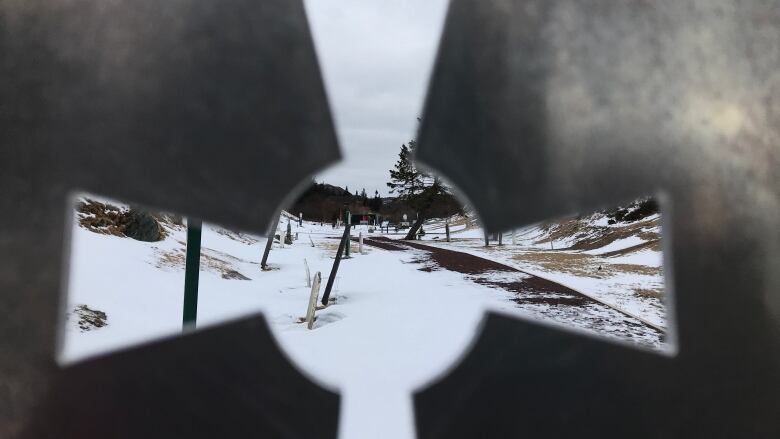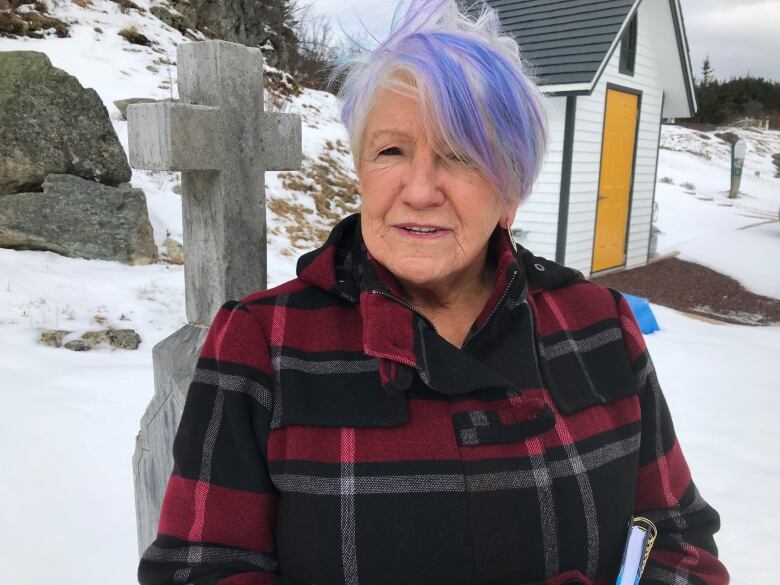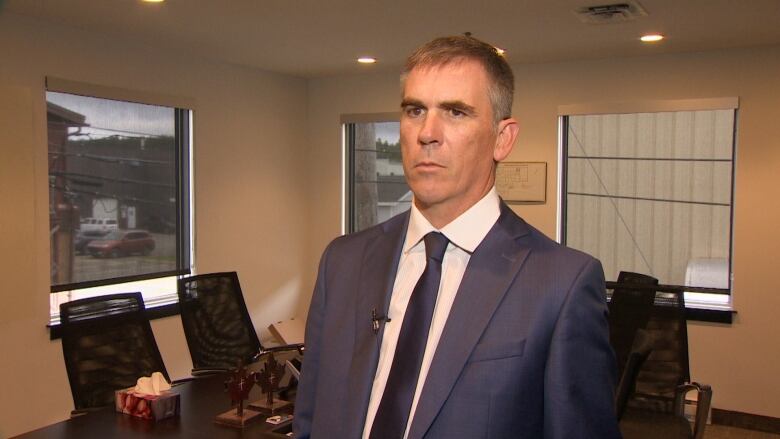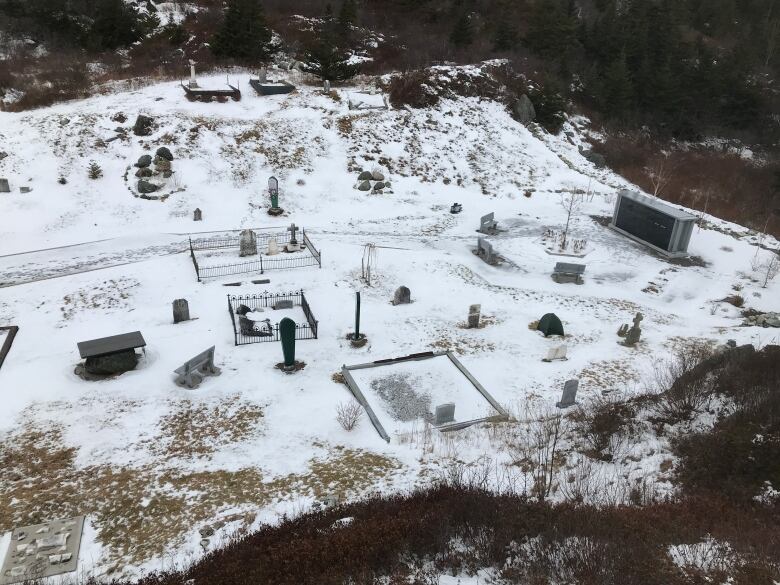Cemeteries will not be sold to help compensate Mount Cashel victims, says archdiocese
Lawyers for victims not so flexible, however, when it comes to church-owned school properties

Uncertainty about the fate of cemeteries in the Roman Catholic Archdiocese of St. John's has been put to rest following an agreement in principle that excludes the sacred properties from a historic and ongoing liquidation process.
Evelyn Grondin-Bailey, a member of the St. Patrick's cemetery committee in Burin, said Monday she was "absolutely elated" that the restored cemetery in her community will not be sold.
"We were extremely happy to get that news," she said.
But lawyers for the dozens of survivors of sexual abuse at the former Mount Cashelorphanage say they won't be as lenient when it comes to the roughly 35 schools owned by the Catholic Church that were seized by the government after the dismantling of denominational education in the 1990s.
"If churches are being seized and sold to satisfy judgments, what about the schools?" lawyer Geoff Budden, who represents more than 70 abuse survivors, asked Monday.
"What about the schools that to this day are owned by the [Roman Catholic]Episcopal Corporation [of St. John's], by the archdiocese, however, which are being used by the government to educate our children? So that has to be part of the discussion as well."
Cemeteries removed from tender package
In a statement published on its website Friday, the archdiocese stated "no existing cemetery lands will be marketed for sale" and that cemeteries previously included in a court-approved tender package"have been removed."
The agreement was reached following discussions last week between officials from the archdiocese, legal counsel for the abuse victims, and Ernst & Young, the court-appointed trustee for the archdiocese.

It followed an outcry in some parishes that cemeteries were being included in the list of assets being considered for saleto help raise millions of dollars to compensate victims of abuseat the hands of members of the Irish Christian Brothers during their stay at Mount Cashel in the 1940s and '50s.
The archdiocese, following a lengthy legal process,has been found vicariously liable for the abuses, and is now selling off assets, including the Basilica Cathedral of St. Johnthe Baptist in St. John's.
But in a statement, the archdiocese said, "Ownership of existing cemetery lands will be retained by the Catholic community."
When contacted, Archbishop Peter Hundtwrote, "We have no further information to add at this time."
No commercial potential
But Budden said there was never any intention to include cemeteries in the sales process. He explained there are many commercial, legal and moral reasons why cemeteries are being excluded, including the fact they have very little commercial potential.
"Nobody has ever viewed the cemeteries as possible sites for commercial ventures so it was never seen as being part of the estate from a commercial point of view, and it's not seen that way now," said Budden.
That's welcome news for Evelyn Grondin-Bailey and other members of the St. Patrick's cemetery committee in Burin.
The committee has invested some $500,000 money raised through a successful chase the ace lottery and other initiatives to restore St. Patrick's, an ancient cemetery that hadn't been used for more than half a century.

The centrepiece of the restored cemetery is a new columbariumin which families can inurn the cremated ashes of their loved ones, at a cost of $2,250 for up to three urns.
There are 17 vaults, also known as niches, still available in the granite structure, and the footing is in place for two more columbariums. The committee was worried a potential investor might see a business opportunity in the cemetery, and make a bid for the property. Now that appears unlikely, and the committee plans to resume its restoration work, including the addition of a memorial wall.
While the matter of cemetery ownership appears to have been settled, the St. Patrick's cemetery is still in a dispute with the archdiocese over money.
After the archdiocese filed a notice of insolvency in December, it seized the funds of all 34 parishes in the archdiocese, including$200,000 raised by the St. Patrick's cemetery committee
Grondin-Bailey said the committee plans to meet with a lawyer on Wednesday to determine whether it has legal grounds to challenge the archdiocese.
"We want to get our money back, or at least as much of it as we possibly can," she said.

Meanwhile, lawyers for the victims are laying the groundwork for a legal challenge that could involve about three dozen school properties in the area served by the archdiocese.
Budden says the schools including GonzagaHigh School in St. John's, O'DonelHigh School in Mount Pearl and Marystown Central High School are owned by the archdiocese's episcopal corporation.
He said the schools were seized by the government after the non-denominational schools act became law in 1997.
"The government, for its own purposes, seized those schools and is using them free of charge to carry out an important social purpose. And another important social purpose is to compensate survivors of abuse. And how those things interact, we will find out," said Budden.












_(720p).jpg)


 OFFICIAL HD MUSIC VIDEO.jpg)
.jpg)



























































































